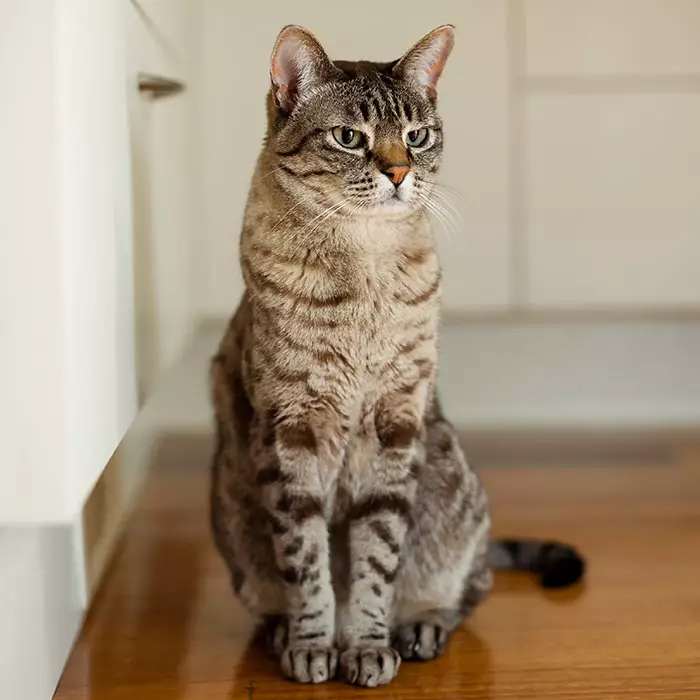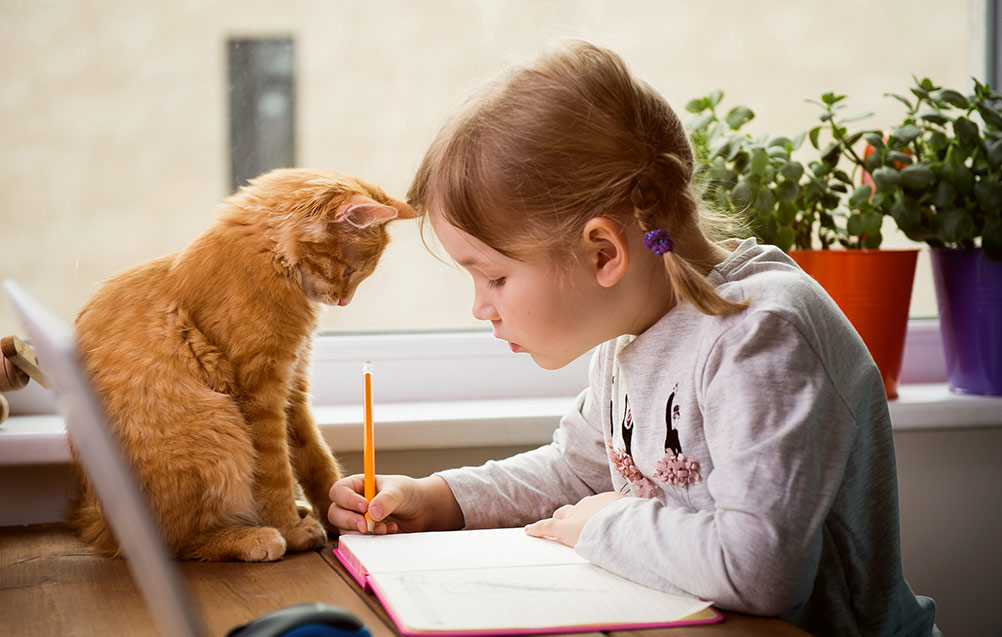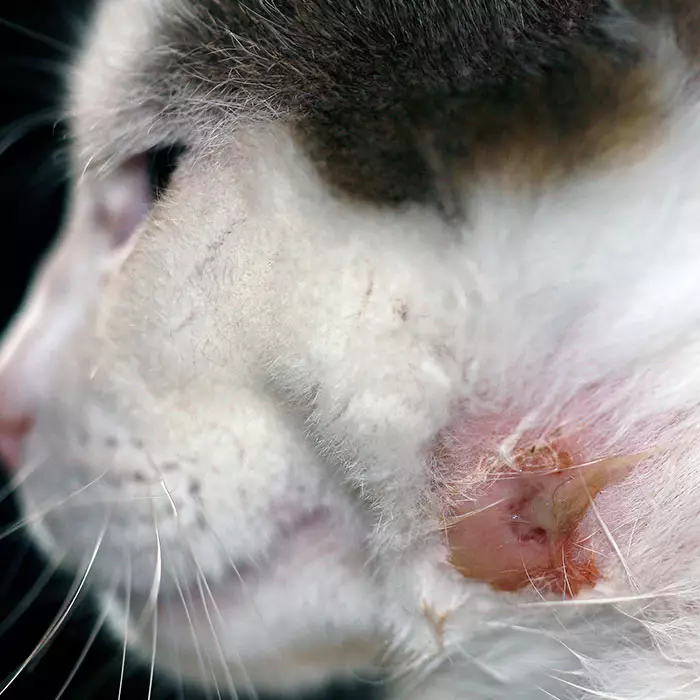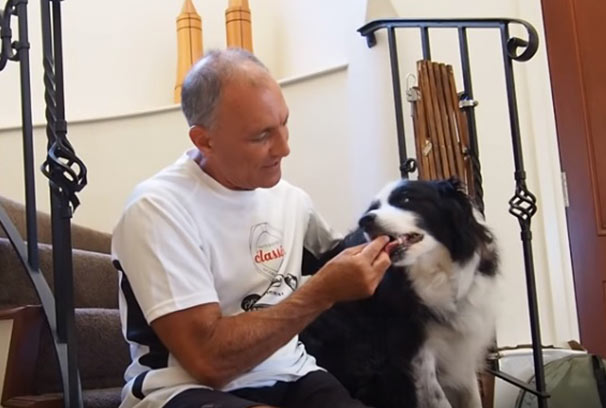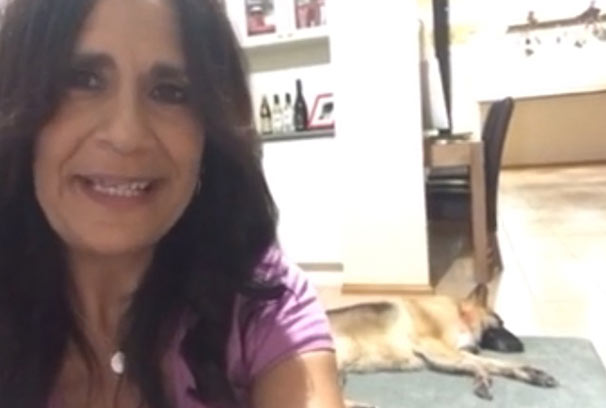Understanding why your cat might gently bite you out of nowhere
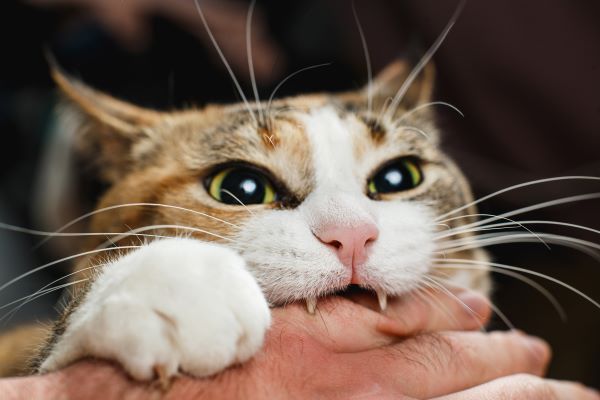
The importance of understanding cat biting behaviour
There are questions that keep many cat owners wondering … Why does my cat bite me gently out of nowhere? Is cat biting a sign of affection or is it an aggressive behaviour? How should I respond appropriately to my cat’s playful biting (and sometimes not so playful biting)?
 Cat biting is both a fascinating and frustrating area of cat behaviour. If your kitty treats your hand like its favourite chew toy, it may be time to try to figure out why.
Cat biting is both a fascinating and frustrating area of cat behaviour. If your kitty treats your hand like its favourite chew toy, it may be time to try to figure out why.
In this article, we will crack the code to the purr-plexing behaviour of cat biting and help you understand why your cat seemingly bites you out of nowhere, and what you should do about it.
The reasons for gentle biting
Communication through biting
Is your cat using her teeth as a way to try to tell you something?
Cats are complex creatures, and most cat owners will sometimes struggle to understand their cat’s attempts to communicate.
There are many means that our cats use communicate, such as purring, licking,tail swishing and clawing. Our job as pet parents is to watch carefully and try to read their signs and decode their messages, so that we can respond accordingly.
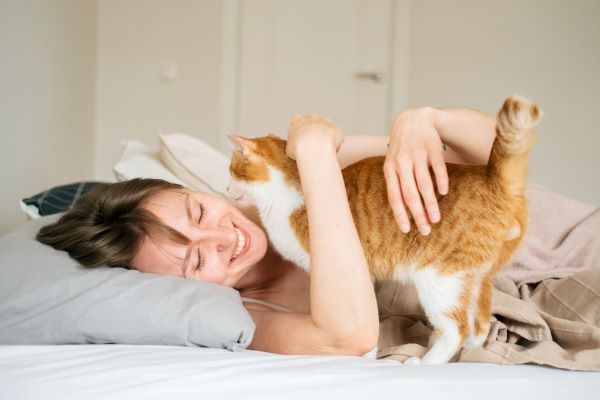
Cat love bites
Cats may use gentle biting and licking as a way to express love and affection. You can think of it as their version of a hug or a kiss, or more precisely, a ‘cat love bite’.
Cat love bites are usually harmless. They don’t break the skin and usually don’t hurt. Your cat will be relaxed and calm while nibbling on you.
Grooming behaviour
If nipping often happens while you are stroking or grooming your cat, it could be their attempt to reciprocate. Mother cats gently bite their young or other cats while grooming them, so your cat’s nips could be their version of grooming you.
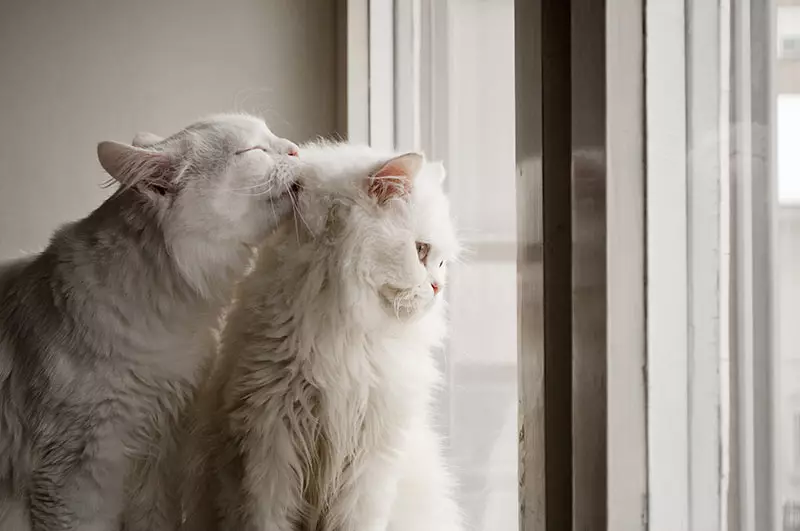
Stop petting!
Another possibility is that your feline friend is simply telling you that they’ve had enough of the interaction – petting, grooming, playing or whatever activity you’re engaged in. It’s time for the petting session to end – now!
Attention seeking
On the other hand, if you’re not paying them any attention, they might be trying to get it, and have learned that a quick nip to your finger is a guaranteed method of achieving this.
Although the message your kitty is trying to communicate with a friendly nip might be cute and painless, you may want to teach them a different way to send it. After all, it could be only a matter of time before they inadvertently draw blood…
Playtime behaviour
Does cat biting behaviour seem to escalate during playtime? You’re playing with them, and suddenly, they’re gently chomping on your finger, toe or other body part with those razor sharp teeth. No pain or blood, but still…
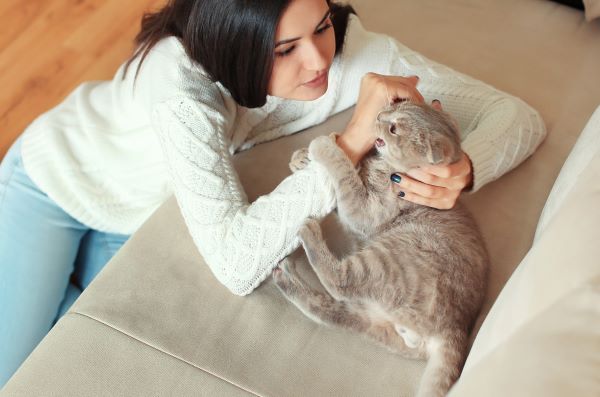
Kittens nip and gently bite their littermates to instigate fun and frolics and they may attempt to do exactly the same when they want to play with their pet parents. If you allow your kitten to ‘playbite’ you, they will continue to do so as adults, albeit with stronger jaws and sharper teeth.
Playful biting can turn into aggressive biting in a cat that is overstimulated, or one who has not learned bite inhibition when they were a kitten (this can happen when kittens leave their mum too early).
Then again, some say that cats indulge in playful biting because biting is part of their natural hunting instinct. After all, we may have taken the cat out of the jungle, but we haven’t completely succeeded in taking the jungle out of the cat.
Find out more about our cat insurance options
Redirected aggression
This refers to a cat’s natural instinct to pounce on an unattainable target being thwarted, and then redirected to a convenient target (your finger, hand, arm or other convenient body part).
For example, your cat is staring out the window, watching a bird hop around in the yard outside. Your cat’s tail twitches, their ears flatten, they lean forward, perhaps growling. You happen to walk into the room, and your cat suddenly launches her teeth into you – the closest moving target – in an act of redirected aggression.
Understanding your cat’s cues
There’s a fine line between a cat love bite and one that draws blood. Cat parents will need to learn to read the signs before their cat crosses that line.
Body language indicating potential for biting
- In most cases, your cat will behave quite normally before a cat love bite, indicating that this behaviour is a non-threatening sign of affection or an attempt to get your attention.
- If your cat bites you because she has had enough stimulation, although the nip can seem to come from nowhere, there will have been some subtle warning signs, such as tail flicking, staring, ear flattening, or tensing of the body.
- When your cat wants to bite as a response to fear, anxiety, discomfort or territorialism, you’ll usually know about it. Warning signals may include intimidating vocalisations such as growling, hissing or exaggerated meowing and aggressive body language such as back arching and clawing.
Learn more about cat body language here.
Addressing gentle biting behaviour
Stay Calm
When your cat play-bites, keep still, avoiding sudden movements or yelps. Over-reacting might confuse your kitty or make them think it’s a game, leading them to intensify their “attack”.
Rather, distract her with one of her favourite cat toys and then reward her with praise and treats for playing with it. If you don’t have a suitable toy within reach, stand up and walk away from your cat to find one. Keep things as calm as possible, so you don’t excite her further.
Redirecting attention during play
Provide plenty of toys and puzzle feeders to keep your cat entertained and mentally stimulated. When your kitty gets bite-y, immediately offer her a suitable toy to redirect her attention from your flesh to an exciting plaything that she is allowed to chew on. Show her that biting on toys is more rewarding than nibbling on your body parts.
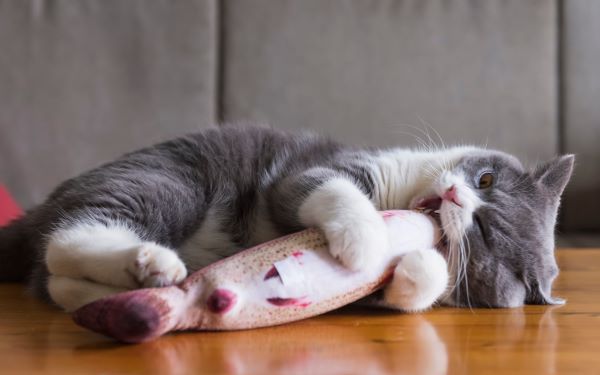
Stuffed animals are a favourite with many cats, while toys that dispense treats are a great way to provide enrichment and long-lasting entertainment. Eventually she will learn that toys—not feet or fingers—are a whole lot more fun to play with!
Learn more about cat play and toys here.
Establishing boundaries
If your cat’s nibbling gets too intense or more aggressive than usual, withdraw and give her some space. Cats appreciate personal boundaries, and their biting may be their way to let you know that you’ve overstepped the line or they are feeling overstimulated.
If this is the case, it’s best to slowly distance yourself from the situation. If this kind of behaviour seems to be happening more frequently, or is becoming a problem for you, consult your vet for advice, as there might be an underlying physical or behavioural issue that needs to be investigated.
Using positive reinforcement
It’s important not to respond to your kitty’s biting behaviour with punishment – your cat doesn’t intend to hurt you, even if your throbbing finger may make you feel like they do!
Also, cats don’t generally respond well to punishment. In fact, negative feedback is more likely to exacerbate the problem – they’ll most likely become frightened and want to fight back, which may lead to more biting.
With this in mind, positive reinforcement in response to good behaviour is the way to go. Praise them when they are not biting you, and remove yourself from the situation when they attempt to bite, thus ending the interaction or playtime, and eventually they will learn the consequences of these behaviours.
FAQs
Is it normal for my cat to bite me gently?
Gentle biting, often accompanied by licking, is a normal part of feline behaviour and communication. But that doesn’t mean you need to continue to allow your cat to bite you, and with their sharp teeth it’s probably best to redirect their biting to an appropriate toy.
How can I differentiate between playful biting and aggressive behaviour?
Read the signs. Your cat’s body language prior to biting is signalling their intentions.
What should I do if my cat’s gentle biting becomes more frequent or intense?
See your vet. One of the most common reasons cats bite is because they are experiencing physical pain or discomfort. They can’t tell you this with words, but they may be trying to tell you with increased biting behaviour.
Can gentle biting be a sign of affection from my cat?
Cat love bites can be a sign of affection, but it can also be a number of other things, for example, they’re scared, don’t want to be held or petted, or are trying to communicate something to you.
A cat’s gentle biting can be a sign of affection if it doesn’t include any signs of aggressive behaviour and isn’t strong enough to pierce the skin.
Conclusion
When your cat gently bites you, generally they are trying to tell you something: “I love you”, “Stop doing that”, or “Pay me some attention”, for example.
Once you understand the underlying reason for your cat’s behaviour, you are able pay closer attention to what their message is, and respond more appropriately.

The benefit is this will enhance your relationship with your cat and make for more harmonious, and potentially less painful, interactions between you and your feline friend.
Bow Wow Meow Pet Insurance can help protect you and your cat should an unexpected trip to the vet occur.
-
Find out more about our cat insurance options
-
Get an online pet insurance quote
Bow Wow Meow is proud to have been awarded winner of Canstar’s ‘Most Satisfied Customers’ Award in the Pet Insurance category for both 2024 and 2025!
Bow Wow Meow is proud to have been chosen as Product Review’s Pet Insurance Award Winner every year from 2018 to 2025! This is based on 2,995 independent customer reviews (as at 21/01/2025), with an overall rating of 4.3*
Google Review rating = 4.5* (based on 968 reviews)
Trust Pilot rating = 4.6* (based on 531 reviews)
Bow Wow Meow is proud to have been chosen as Product Review’s Pet Insurance Award Winner every year from 2018 to 2025! This is based on 2,995 independent customer reviews (as at 21/01/2025), with an overall rating of 4.3*
Google Review rating = 4.5* (based on 968 reviews)
Trust Pilot rating = 4.6* (based on 531 reviews)
Bow Wow Meow has been chosen as a winner in the Finder Pet Insurance Awards 2024. Finder’s panel of experts analysed over 140 quotes to award our Ultimate Care Plan the winner of the “Pet Insurance – Value” category.




